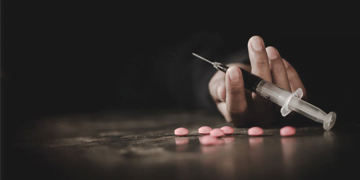Excessive guilt
Richard2023-07-07T12:53:50+01:00Excessive guilt
Excessive guilt: Whether by intention or by accident, feeling guilty about something that you’ve done wrong is a natural emotional response. What causes your excessive guilt? Was it something that you said or did that caused offence? Did you neglect to invite someone to a social occasion? Or maybe you didn’t respond to someone’s message after saying that you would get back to them. These are common mistakes that everyone has made at some point in their lives. Your moral code will set the agenda for what constitutes that wrong, how intensely you feel guilt and for how long are likely to dwell on it.

Feeling guilty in the short term isn’t necessarily unhealthy. The unease you feel in your stomach can contribute to your human growth by helping you consider how to temporarily resolve a situation e.g. by apologising for your wrongdoing. In your re-evaluation of your guilt and from the responses of those involved, it can also motivate you to make better choices if the situation was to happen again. However prolonged and excessive guilty feelings (sometimes called a guilt complex) can be unhelpful. Suppressing your guilt may offer some temporary respite, but like other unaddressed emotions, it can intensify over time, influencing you to feel worse about your actions and the past. Fixating on your “wrong” long after others have forgotten or forgiven what happened can damage your self-confidence and your self-esteem. It can influence feelings of inadequacy and shame. Feeling excessive guilt can be a factor that maintains symptoms of OCD, anxiety, depression, PTSD and prolonged grief.
Understanding your guilt, the background to your excessive guilty emotions and why these feelings persist can help you change the intensity of your emotions, change your reactions and improve your future behaviour.
Excessive guilt: What is guilt and what are the various types of guilt?
There are various “self-conscious” or “self-awareness” emotions that affect how you see yourself and how others might perceive and accept you e.g. pride, embarrassment and jealousy. Personal (and cultural) morals, rules and goals influence how these emotions develop. In its “appropriate” form, guilt can help develop empathy and regulate your social behaviour, acting as your “inner critic” or “guilty conscience”.
You can feel guilty when you imagine (perceive, believe) or become aware that you have undermined your own or somebody else’s moral standards. The guilt may be connected to the “wrong” that you did but (rightly or wrongly) you feel responsible for those actions.
You can similarly feel guilty for your omissions where you believe that what you didn’t do has broken your (or someone else’s) moral code e.g. feeling guilty because you did not intervene when witnessing another person being bullied but justified it at the time since you feared being targeted by the instigator (a form of compassionate guilt). Or when you are unrealistically trying to care for too many people and ultimately believe that you are failing your own expectations.
Some people can experience a “false guilt” that is irrational or connected to other emotions e.g. you can feel guilty for having a “guilty pleasure”, which is connected more to a fear of disapproval. Additionally, you can feel guilty for wishing harm on others, which can derive more from anger, jealousy or envy. Some people can feel guilt accompanied with overwhelming feelings of responsibility for something going wrong even when they played no active part in predicting or contributing to that wrong (also known as maladaptive guilt).
In some cases, you can feel guilty for (what you believe to be) exceeding the moral expectations of your group. Compared to your family or peer group, your route to success and achievement can attract too much attention that you believe others in your social group deserve. To displace the guilt that you are doing better than others “less fortunate than you”, you may “protect” them from feeling worthless by sabotaging your own success and engage in self-destructive achievement-behaviours e.g. not sitting exams or by underperforming in exams. This type of guilt in which you believe that are doing better than someone else is related to “survivor’s guilt”, when you have survived a tragedy or disaster in which others have died or been seriously hurt. With survivor’s guilt, you are not directly responsible for the situation that has harmed others. This type of guilt is very common with combat veterans suffering PTSD who have survived a trauma when many of their troops have died.
Survivor’s guilt can fall into the category of existential guilt, a type of guilt rooted in feeling guilty about your existence rather than specifically doing something wrong. For some people, this type of guilt may surface when confronting the fear of death and reviewing the life that you have led.
There are many other forms of existential guilt such as feeling guilty for leading your life inauthentically (or when you are not achieving your full life potential), feeling guilty for who you are as a person with reference to human nature (and the responsibility of human nature), and feeling guilty within existential boundaries of human belonging, freedom, will and justice. Many of these existential guilt examples can be experienced when someone has set a (direct or indirect goal) to have children but your life partner does not share these procreative goals.
Knowing how much guilt has gnawed at your emotions from past events, you can also suffer guilt anxiety. Guilt anxiety is experienced when your moral code is compromised when you are preparing to deal with a future stressful situation e.g. when needing to break up a relationship or needing to fire subordinate staff due to company redundancies. Viewing it disproportionately from their perspective, guilt anxiety may cause you to delay or completely avoid taking assertive action.

Guilt is closely associated with regret, remorse and shame. In its severe form, guilt can influence deeper feelings of unworthiness. When combined with low self-esteem, you can ruminate or obsess over past “wrongs” in which you believe that you are responsible and don’t deserve to move on from these wrongs. Sufferers of excessive guilt are prone to social isolation to avoid burdening others with your problems. However, you can then feeling guilty for not being sociable. Acts of self-harm or other damaging behaviours are also common with depressive modes that seem to have no solution.
With excessive guilt, you can be convinced and even paranoid that you’ve done something wrong, despite the evidence pointing to the contrary. With fear of harm OCD, your own senses can betray you, overestimating your actions as being serious in a situation in which your mistake only had minor consequences, if any at all.
As a psychological defence mechanism, some people suppress or repress guilt when having forbidden and taboo thoughts (common with guilty thoughts OCD). However the act of suppression or repression can strengthen those negative thoughts and keep them active often intensifying the guilty emotions and keeping the sufferer in a recurrent cycle of excessive guilt. Another defence mechanism is guilt denial. When you deny your feelings of guilt, you do not acknowledge responsibility for the wrong. Instead, you may project your guilt onto others by blaming the victim for the “wrong” in the form of a guilt trip.
When you are conditioned to use guilt trips to communicate needs, it can become habit-forming, as a natural way trying to get what you want from others (and vice versa). Guilt trips can take various positive and negative forms. In some cases it can be used to morally try to educate another person, to avoid conflict about the issue in hand or draw sympathy from the harmed person by appearing to be the victim. As a more devious form, a guilt trip can be manipulative, forcing another person to do something that they don’t want to do. In this extreme form, guilt denial can be a feature of psychopathy.
Excessive guilt vs. shame
It’s worth distinguishing between guilt and shame as it’s easy to confuse these emotions when you are reacting to feelings of distress. Both emotions can create similar symptoms, but they are not the same.
Guilt is a feeling of remorse and responsibility connected to the perceived wrongful act (or omission). You would probably say something like “I handled that badly” following the situation. Despite the perceived wrongful act, you believe that you are fundamentally a good person. You can appreciate that there are potential constructive steps to make amends for the wrongful act.
Shame, on the other hand, is related to your self-image. It is more connected to a violation of social norms or ideals that are focused on your character as a whole, rather than a specific behaviour or event. It is far more toxic and destructive to your self-esteem than guilt. You are convinced that “you” are what’s wrong and believe that there is no solution available to redeem your worth. You would probably say something like “I’m a horrible person and I don’t deserve good things” following the situation. As a reaction, you are more likely to self-destruct by punishing yourself (e.g. with isolation or self harm) or suppress your shame and be aggressive towards others.
What causes excessive guilt?
Core emotions such as guilt can develop as early as three years old. There are various factors that can contribute to excessive guilt. Whilst guilt can be shown in MRI studies, it is considered a reflection of that person’s learned social standards rather than what might be genetically inherited.
Causes of guilt can include:
Childhood experiences: Parents who have grown up with a “guilty” belief system are more likely to use language patterns that will further embed guilty beliefs into children. Guilt can also be exacerbated within families in which the authority figures value harsh discipline, excessive punishment and additional responsibility for the young children. A child who is unable to communicate their guilt can live in fear of being discovered and severely punished. This may intensify their guilt and create further attempts to hide (or suppress) their wrongs, only to be caught at a later stage. In addition to this, a child will continue feeling guilty when parents maintain their disappointment and are unable to assert their forgiveness.

Low self-esteem: Connected to childhood experiences is the early development of your self-esteem. Guilt is a potential symptom of low self-esteem. With low self-esteem, you doubt the value of your thoughts, emotions, beliefs and behaviour. You have a negative opinion of yourself and are more likely to value the authority of others’ opinions. Rarely feeling good about yourself, these recurrent inferior belief patterns will direct blame inwardly. You are more susceptible to accepting others’ judgements of you and are thus vulnerable to those who are blame averse. You often believe that you deserve blame and don’t deserve to be forgiven.
Anxiety: There is a strong connection between anxiety (the feeling) and guilt (the effect). Feeling guilty then causes more anxiety and continues this emotional cycle. This mutual cause-and-effect relationship can be a feature of OCD and depression.
Social anxiety: Having social anxiety as with low self-esteem, you are more likely feel social pressure to give authority to other people’s judgements that you are responsible for the wrong. You can then fear being excluded if you are deemed responsible for the wrong. With social anxiety, you may also isolate yourself because you fear doing something embarrassing. Being questioned about your absence (to a party for example) can influence guilty feelings because you fear offending other people.
Culture and society: Cultural norms can create deep and (often unrealistically high expectations) of how you should lead your life from the society’s perspective against how you personally want to lead to your life. You may be told from individuals that your behaviour is bad or imagine that “culture” will tell you that your behaviour is bad. Without conforming to these norms you can feel isolated, disrespected and disgraced. Your guilt can be heightened when the norms that you adopt from one social group may be in conflict with the norms of another social group e.g. teenage deviance may be admired by your teenage peer group culture but despised by your family culture.
Religion: Some religions (and their interpretation) can give more emphasis to guilt when your behaviour is not synonymous with the teaching of the religious values. With some religions, it is believed that your wrongful thoughts and actions are known to the religious deity and it is often necessary to confess, repent and atone for these wrongs to be forgiven by the religious deity.
Excessive guilt: Symptoms of guilt
Many of the symptoms of guilt are connected with anxiety, OCD and depression. They can include:
Physical symptoms: general muscle tension, diaphragmatic tension or “butterflies”, sleep problems, headaches, nausea, fatigue, upset, distracted, concentration problems, anxiety-related IBS etc.
Emotional symptoms (as a consequence of anxiety): feeling tense and irritable, oversensitive to the effect of your actions, feeling tearful and remorseful, feeling responsible to make life better, feeling overwhelmed by own mistakes, feeling inadequate etc.
Behavioural symptoms (as a consequence of anxiety): being indecisive, defensive, desperately apologetic, being preoccupied with past mistakes, trying to make amends for the wrong, blaming yourself, trying to gain other’s approval, overreacting to criticism, being deluded that you did something wrong, favouring other’s needs to the detriment of your own needs, isolating yourself from others, being fearful that you made the wrong decision etc.
Common treatment approaches
Excessive guilt can affect your mental well-being and quality of life. If the above symptoms are interfering with your life on a frequent basis, there are various treatment options available to you.
Medication: Your doctor may prescribe anxiety medication or anti-depressants to help with your symptoms. They may additionally suggest having therapy.
Therapy: CBT (Cognitive Behavioural Therapy) can help you confront the negative thoughts and behaviour that are contributing to your guilt.
Self-help: There are various self-help methods to cope with guilt including venting your guilt to a good listener, reading self-help books and online articles, engaging in online forums, etc.
How can hypnotherapy help excessive guilt?
Hypnotherapy can reframe your guilty event

There are many hypnotherapy techniques available to treat your guilt. Regression can be used to establish any underlying patterns of “guilt learning” that you’ve experienced in your life. Regression can also be used to access the initial sensitising event (ISE) and access the most immediate source of the emotion, also known as the symptom producing event (SPE). These events can then be reinterpreted by enabling the adult mind to heal the “inner child’s” perspective of the guilty trauma.
Hypnotherapy can facilitate your (self) forgiveness
As part of the reframe from above (and where it’s possible and appropriate), self-forgiveness can be explored to release you from the “grip” of the past guilty event. It can be difficult to apply this process for yourself when your excessive guilt is directing you to replay the guilt.
Many people know which event that is triggering the excessive guilt. Its constant “replay” may feel like you are absolving your guilt, but instead you are reliving the process, creating an unnecessarily long-term suffering without applying a therapeutic intervention. In hypnosis, you can gain a partial release of your guilt by acknowledging and accepting the accountability for the past behaviour. Anger and resentment can be further explored to continue this release.
As you work through your guilt, you can reappraise the motives of your original behaviour without excessive judgement. Then, by establishing potential changes for the future, you can facilitate an openness for relearning and continued self-compassion.
Using this dissociated reframing process in the focused hypnotic state, many clients can feel like the internal burden of guilt has been lifted from your shoulders.
Hypnotherapy can interrupt your guilt obsession
In many cases of OCD, guilt and anxiety play a dominant role in locking you into your rumination. You are desperately trying to liberate yourself from a negative thinking cycle, but those thoughts keep coming back. Thought suppression has a limited short-term effect and will swamp you when you are not distracted or at night when you are settling down to sleep. Hypnotherapy can give to effective techniques to eliminate this guilt obsession cycle.
Hypnotherapy can build your self esteem
When you suffer with low self-esteem, you have a low opinion of yourself and your beliefs. You give more authority to the thoughts, feelings and behaviour of others. When people blame you, you are likely to accept their judgement of your wrong as the “fact” of the matter, as if you deserve it. Hypnotherapy can be used to build your self-esteem and treat these associated issues that exacerbate your excessive guilt.
Hypnotherapy can release the physical sensations of guilt
The mind-body connection can be strong, influencing physical (psycho-somatic) symptoms of tension and postural changes derived from thoughts, emotions and beliefs. If you sense that you are “carrying” your guilt or it is “weighing you down”, these metaphors can create an embodiment of your guilt, as if acting like an emotion with “real” weight on your body. For those clients who bring this embodied cognitive framework into the treatment process, hypnosis can be used within this metaphor to release the “heavy” sensations that guilt is generating on your body.
Hypnotherapy can access your attachment to past judgements
(Existential) guilt can create a constant feeling of wrongness about who you are and taint everything that you do (or don’t do). You may be able to identify the source of this judgement before treatment and work through this in the treatment process e.g. with family or religious values. Sometimes, the source can be unconscious, leaving you confused about your authenticity and feeling responsible for events that are not your fault. You can fear the future, anticipating blame for something that you believe will go wrong. Hypnotic regression techniques can help you access the source of your previous judgement, releasing feelings of (over) responsibility. It can be used to realign your accountability for your past and feel more positive about your future.
Hypnotherapy can help you re-imagine an apology

Not having the opportunity to apologise for the way you handled a situation at the time of the event can leave you with feelings of guilt. The situation may have passed a long time ago. Sometimes this feeling of guilt is connected to a negative grieving cycle in which you were unable to absolve with the deceased before they died. In a deep state of hypnosis you are more receptive to hypnotic suggestions. Hypnotic suggestions can be used to help you to visualise the apology and any helpful accompanied forgiveness (and self-forgiveness) to give you the much-needed closure that was unavailable at the time. This can enable you to be a peace with the event and with those people connected to it.
Hypnotherapy can help you identify why you don’t deserve to absolve your guilt
There may be deeper reasons behind your need to maintain your excessive guilt. These reasons are not always rational but can be a reaction to background trauma or excessive conditioning. Being blamed with excessive punishment can engender a general self-blame perspective in which you then anticipate blame. Accompanied harsh criticism can then damage your self-esteem in which you form beliefs that you are not good enough to be free of blame. Hypnotherapy can help you identify these accumulative patterns of negative conditioning and any unrealistic standards of behaviour that felt controlling or abusive. The meaning of these events can be reframed to release your repressed feelings of blame, responsibility and guilt.
Hypnotherapy can help you reduce anxiety connected to your guilt
Having felt the distress of guilt in the past, anxiety can give you the warning to avoid this overwhelming sense of wrongness again in the future. How you stored, reacted to, and even suppressed the event can provoke confusion about how to cope with the way forward. You can then fear making an even bigger mistake again and intensifying your guilty feelings. For example, if you have made numerous mistakes in work that have needed other colleagues to rectify them, you can feel anxious about this chain of events happening again. You will then doubt your ability and worry about the potential burden on your colleagues.
Regression techniques are one of the many hypnotic strategies () that can be used to identify what events are suppressed or they can be used to reinterpret these events to release your guilt.
Excessive guilt: Summary
Feeling guilt is a natural emotional response to doing something wrong.
Obsessing on the guilty act long after the event can have a detrimental effect on your well-being. The need to fixate on your guilt may indicate a more traumatic background or other mental health issues. Hypnotherapy can offer many strategies to help you overcome your excessive guilt.
You can access treatment for excessive guilt in person and remotely by completing the Contact Form. There is more information about hypnotherapy in the hypnosis test.











